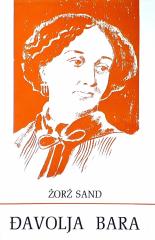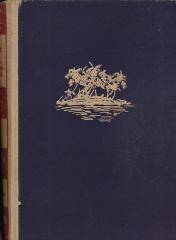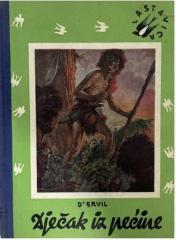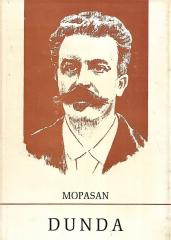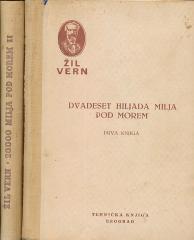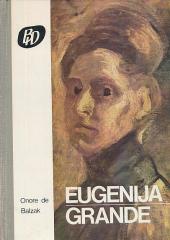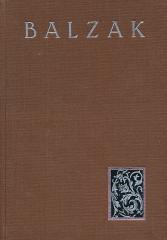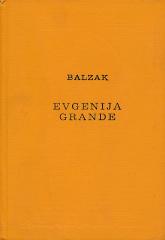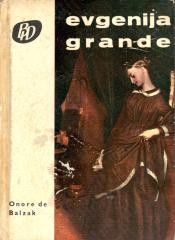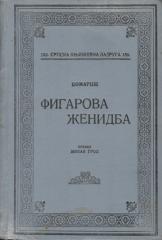Francuska književnost
Đavolja bara / Mala Fadeta / Nahoče Fransoa
The Devil's Pond depicts the life of humble peasants in the French province of Berry. Little Fadette is the story of a girl named Fadette, who is rejected by her community because of her appearance and behavior. Intentional François tells the story of an
Djeca kapetana Granta
A classic "Verne-esque" adventure in which the heroes get into trouble after trouble, full of incredible twists and dangerous situations that make the reader anxious, although it is clear that the story must have a happy ending.
Dječak iz pećine
The book "Cave Boy" deals with the topic of prehistoric life, showing the adventures and challenges faced by the young protagonist in a cave environment.
Dunda i druge novele
The story is set during the Franco-Prussian War (1870–1871), and begins with the escape of French citizens from Rouen, under Prussian occupation. Among them is Elizabeth Rousset, "Dunda", a girl of easy morals but a kind heart.
Dvadeset hiljada milja pod morem 1-2
A science fiction novel written at the end of the 19th century by the famous French storyteller for children and young adults, Jules Verne, who was also the founder of the science fiction genre.
Eugenija Grande
"Eugénie Grandet" (1833), part of Balzac's Human Comedy, is a realistic novel that explores greed, family relationships, and the sacrifices of love in provincial French society.
Eugenija Grande
"Eugénie Grandet" (1833), part of Balzac's Human Comedy, is a realistic novel that explores greed, family relationships, and the sacrifices of love in provincial French society.
Evgenija Grande
"Eugénie Grandet" (1833), part of Balzac's Human Comedy, is a realistic novel that explores greed, family relationships, and the sacrifices of love in provincial French society.
Evgenija Grande / Muzej starina
In his novels Eugenie Grandet (1833) and The Museum of Antiquities (1837), Balzac explores universal themes of greed, human passions, sacrifice, and moral dilemmas, placing them in different social contexts of 19th-century French society.
Figarova ženidba ili Ludi dan: Komedija u pet ćinova
The comedy "The Marriage of Figaro, or The Mad Day" (1784) is a sequel to The Barber of Seville. The Marriage of Figaro criticizes social injustices through love affairs and intrigue, celebrating Figaro and Susanna's ingenuity in the fight against aristoc
Literature
- A philosophical novel
- A war novel
- Adventure novel
- American literature
- Ancient literature
- Anthology
- Aphorisms and jokes
- Arabic literature
- Bosnian literature
- British literature
- Bulgarian literature
- Chinese literature
- Comedy
- Croatian literature
- Czech literature
- Detective Stories
- Documentary literature
- Epic Fantasy
- Epic literature
- Epistolary literature
- Erotic Novels
- Essays and diaries
- Fantastic literature
- Folk literature
- Francuska književnost
- German literature
- Greek literature
- Hispanic American literature
- Historical novel
- History of literature
- Horror/Gothic
- Humor and Satire
- Hungarian literature
- Indian literature
- Iranian literature
- Italian literature
- Japanese literature
- Jewish literature
- Latin literature
- Literary criticism
- Literary Theory
- Macedonian literature
- Montenegrin literature
- Moral and didactic literature
- Movie Script
- Novel
- Novele
- Plays
- Poems in prose
- Poetry
- Polish literature
- Portuguese literature
- Proverbs and maxims
- Romance Novels
- Russian literature
- Sayings, thoughts, aphorisms, proverbs
- Scandinavian literature
- School reading
- Science Fiction
- Serbian literature
- Short Stories
- Short stories
- Slovenian literature
- Social literature
- Spanish literature
- Summaries and adaptations of literary works
- Teen Novels
- Thriller
- Tragedy
- Turkish literature
